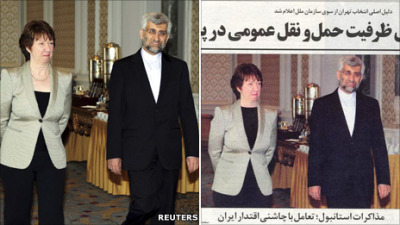![]()
When I started working in the Horn of Africa, in the mid 90's, my first emergency was a drought operation. Between 1900 and now,
the region had more than 18 famine periods. This year,
we have another one. And I am sure - unless we change things drastically - there will be another drought emergency a few years from now.
As an aidworker, I always worked in emergencies. Droughts, floods, hurricanes, earthquakes, wars, were my daily work... Some of these calamities are hard to anticipate, leave alone mitigate. But other, climate change related emergencies, are. At least partially. The question is: "Are we doing enough?".
My answer is: NO. According to me, both the humanitarian community neither the donors put enough emphasize on agricultural development, which -to me- is the core of climate change mitigation for farmers in many parts of the world.
In the past year, I travelled through Kenya, Mali, Burkina Faso, Ghana and India, interviewing a dozen farmer communities on climate change. I recorded their views on the current state, their wishes, their fears, and condensed it in about 30 videos (the videos you can watch here, some of the stories, you can read here). The problems differed from region to region, and so do the possible solutions.
What got to me is not only the struggles of the farmers themselves, but also the social implications of the failing agriculture in many parts of the world. In Kenya, most of the men went off to work in the cities, leaving the women to farm, and to raise their families. In Burkina Faso, whole villages migrated due to repeated failing crops. In India none of the people I spoke to, saw farming as a viable way to make a living anymore. All but one family saw the future for their kids as getting a "proper" job, somewhere in a remote city. Where will that leave us, ten-twenty years from now? Farming is the basis of many developing countries. No farming, no food, as simple as that. But even more importantly, without proper targeted agricultural development, farmers will even have it harder in the years to come. Already many live on the edge of survival. It does not take much to push them over the edge. As what happens in the Horn of Africa, this year once again.
And yet, it does not take much. Locally adapted solutions make a big change. Be it a dam, constructing low walls to avoid water running off and taking the top soil with it, planting trees to avoid erosion, micro-dosing fertilizer,.... Or wider solutions in breeding crop varieties, better adapted to the changing environment.
But little is invested in agricultural development. I broke a bone before on how cutting agricultural development, is like digging our own grave. The most frustrating part, for me, is to see how the budgets for aid emergencies, like the current drought in East Africa, beats that of agricultural development in the same area, by a ton. How everyone is beating the press drums once a drought hits a region again, but the same drums kept silent for the years before that. How the press is all over the current drought, but hardly made any room to show sustainable solutions, in the past. Everyone cries foul now over the drought, but hardly anyone was interested in the same region, in the past. And still, the impact of the current drought could have been avoided. But we failed to do so. The humanitarian community failed, the press failed, the public interest failed,...
Emergency aid relief is a plaster on a wooden leg. Sure, we have to help the people dying of famine right now, but our interest will fade out once the peak of the emergency is over.
And that gets to me.
More posts about agricultural development on The Road
Read the full post...







 Peter. Flemish, European, aid worker, expeditioner, sailor, traveller, husband, father, friend, nutcase. Not necessarily in that order.
Peter. Flemish, European, aid worker, expeditioner, sailor, traveller, husband, father, friend, nutcase. Not necessarily in that order.
The Road's Dashboard
Log in
New
Edit
Customize
Dashboard